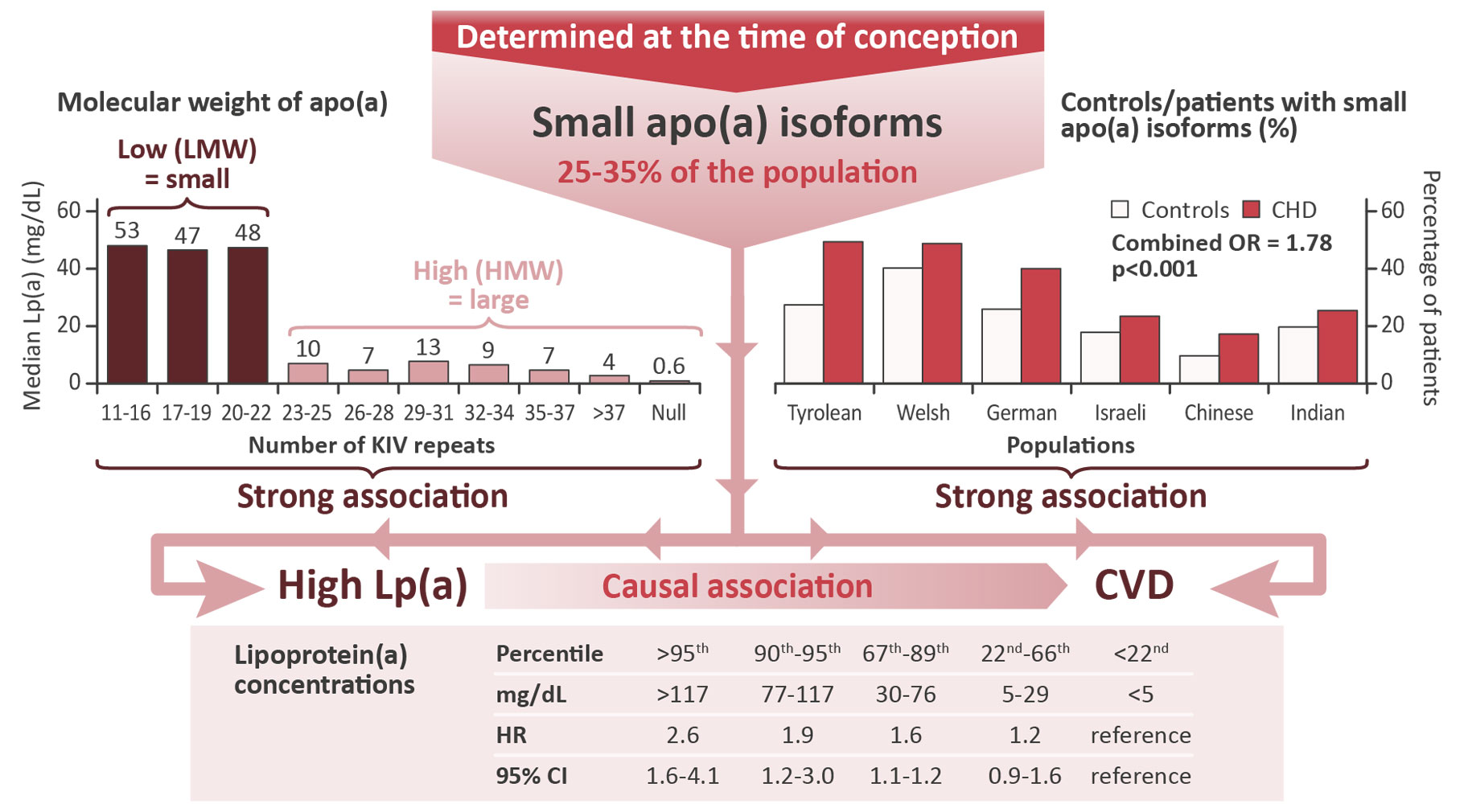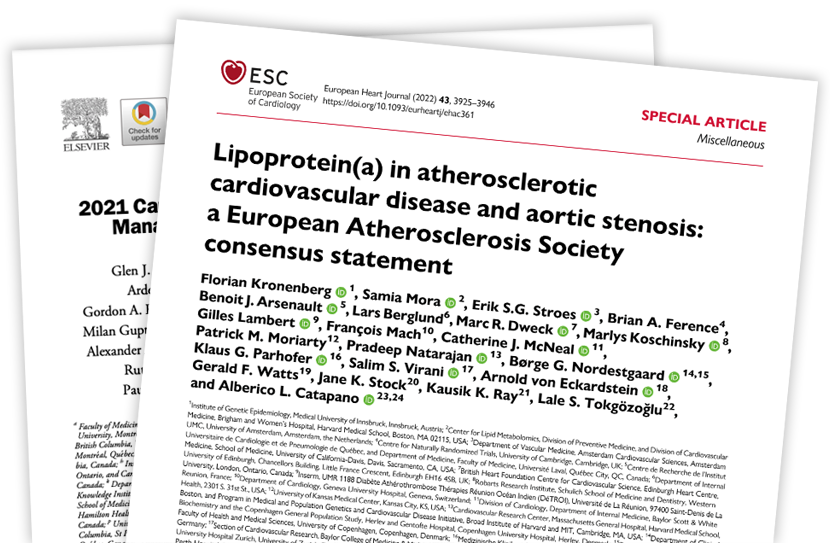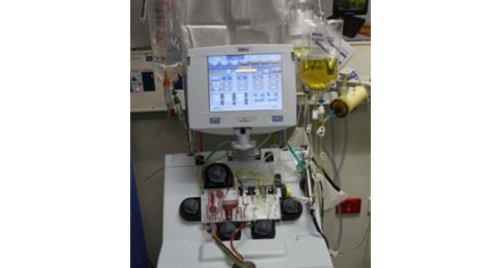Latest:
Back to Basics Slide Deck Resource

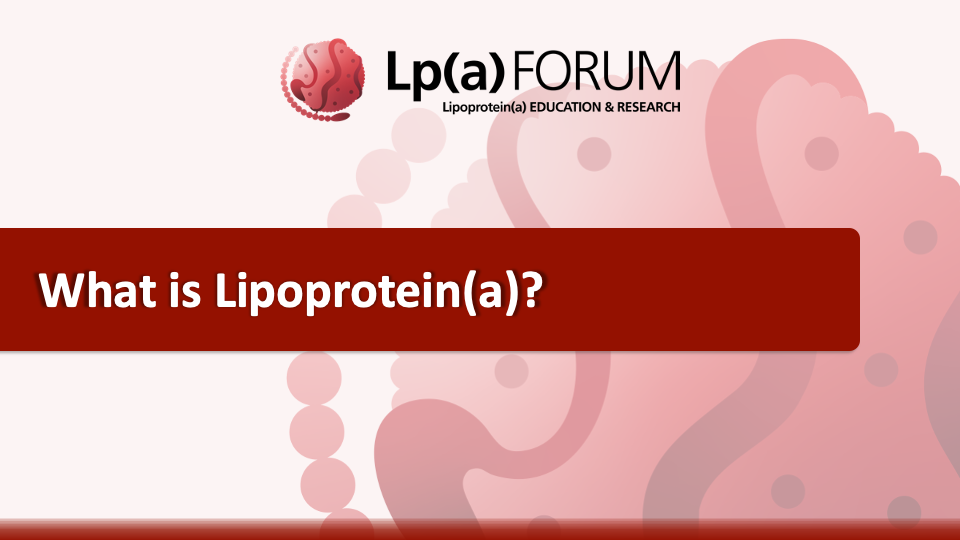

The first of a new series of Back to Basics downloadable, state-of-the-art slide decks, What is Lp(a)?, introduces the key advances in understanding of the science of Lp(a) since its discovery in 1963, and shows why it has become such an important target for combating atherosclerotic cardiovascular disease.
In his accompanying expert video commentary, Professor John Chapman discusses the structure and function of Lp(a), the genetic and non-genetic factors that affect levels of Lp(a) and its proatherogenic, proinflammatory and prothrombotic activities.

Lilly has provided arms’ length sponsorship funding for the Lp(a) Forum Back to Basics Educational Resources but has had no influence or control over the content.
Latest Congress Highlights

Among the Lp(a) research highlights, presented at the American Heart Association Scientific Sessions 2025 (7-10 November, New Orleans), were a further analysis of data from the Phase 2 OCEAN(a)-DOSE study and new insights into the role of Lp(a) in myocardial inflammation, opportunities to address barriers to Lp(a) clinical trial recruitment, projections on the impact of Lp(a) lowering on coronary heart disease risk, and the potential effects of social deprivation on epigenetic modification of the LPA gene and changes in plasma Lp(a) levels.
Second Closed Scientific Expert Meeting of the Editorial Board
Update on Phase 2/3 investigations of lepodisiran and muvalaplin

Professor Steve Nissen, Cleveland Clinic, Ohio, USA, presents results of the ALPACA trial with lepodisiran and the KRAKEN trial of muvalaplin in patients with elevated Lp(a).
Update on the olpasiran clinical development programme

Professor Michelle O’Donoghue, Brigham and Women’s Hospital, Boston, USA, presents data from the Phase 2 OCEAN(a)-DOSE trial and previews the OCEAN(a)-OUTCOMES study.
Lp(a)HORIZON cardiovascular
outcome trial

Professor Steve Nissen, Cleveland Clinic, Ohio, USA, provides an update of the Lp(a)HORIZON trial – the first study due to report results of Lp(a) reduction on cardiovascular outcomes.
Elevated Lp(a) and coronary artery disease severity

Professor Ulf Landmesser, Charité University Medicine Berlin, Germany, presents research linking higher Lp(a) levels with more severe and complex-to-treat coronary artery disease.
About Lp(a) Forum

The Lp(a) Forum is a new, independent, non-profit, expert-led, global initiative providing clinicians and researchers worldwide with open access, peer-reviewed resources devoted to the exciting and rapidly developing area of Lp(a) science and therapeutics.
The Forum brings together internationally-recognised experts from the scientific and clinical communities who are committed to developing awareness, knowledge and understanding of the importance of Lp(a) as an independent risk factor for atherosclerotic cardiovascular disease (ASCVD) and aortic valve stenosis, even when LDL-cholesterol levels are low… Read more
Free Membership
Lp(a) Forum Co-Chair, Professor John Chapman, invites you to join Lp(a) Forum for open access to multimedia educational resources about Lp(a) science, management and research.
Why do we need this Forum?
In recent years, unequivocal evidence has been published supporting Lp(a) as a target for lipid lowering therapies to reduce cardiovascular risk in individuals with significantly elevated Lp(a) levels. Innovative Lp(a) targeted therapies are in development and there is now an urgent need for reliable, accessible scientific and clinical information about Lp(a) for the clinical and scientific community that is appropriate for all levels of expertise and interest.
Back to Basics
Back to Basics summarises current thinking on key aspects of Lp(a) science and management
What is Lp(a)

Lp(a) is a plasma lipoprotein that consists of an LDL-like particle in which apolipoprotein B100 is covalently linked to the plasminogen-like protein…
Read more
Lp(a) measurement
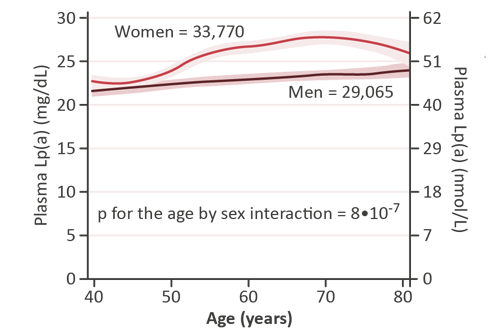
Lp(a) level is measured as Lp(a) particle number (nmol/L) or Lp(a) mass concentration (mg/dL), and levels ≥100/125 nmol/L (≥50 mg/dL) are …
Read more
Why test Lp(a)?
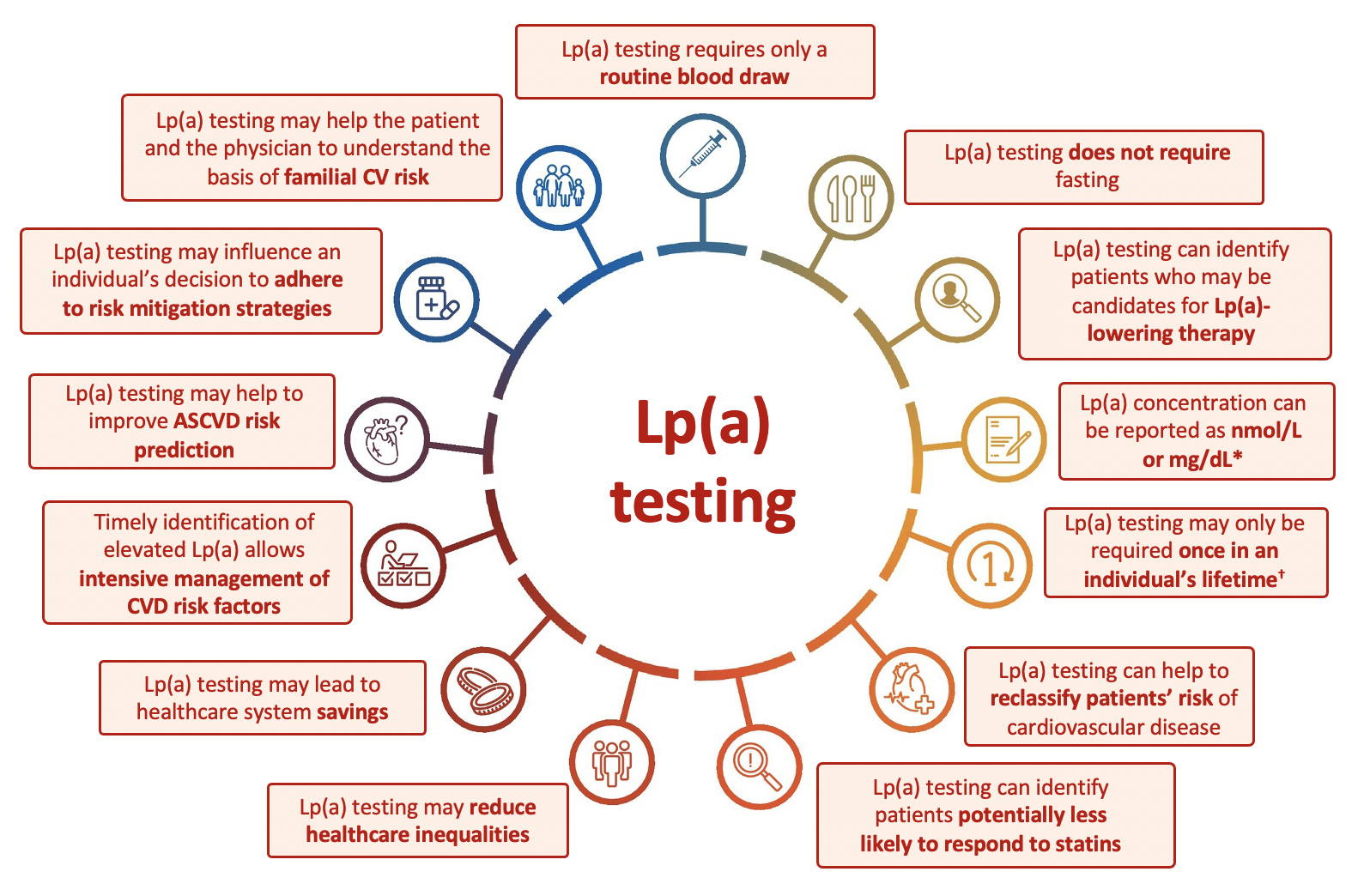
Professor Keith Ferdinand, Tulane University School of Medicine, New Orleans, USA, discusses the advantages of Lp(a) testing for patients and their families…
Read more
Lp(a) and CVD
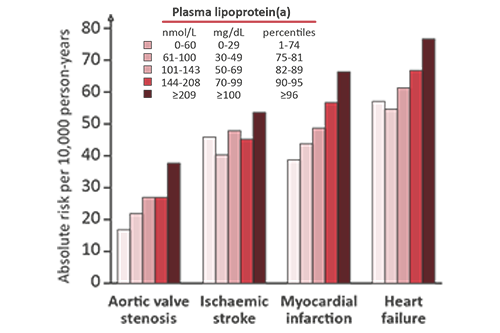
Elevated Lp(a) is associated with increased risk of coronary heart disease, ischaemic stroke, peripheral artery disease, heart failure, aortic stenosis and mortality …
Read more
Lp(a) therapies

No Lp(a) targeted therapies have been approved, but experts agree that intensive management of other risk factors is important in individuals with elevated …
Read more
News

Practical framework for Lp(a) screening and CV risk reduction in Canada
A practical framework for Lp(a) screening and cardiovascular (CV) risk assessment and management in Canada highlights inconsistent Lp(a) …

OxPL-apoB and OxPL-apo(a) tests validated for potential use in Lp(a) studies
Chemiluminescent ELISA methods for analysing the oxidised phospholipids, OxPL-apoB and OxPL-apo(a), have been validated …

Lp(a) perceptions in Latin America
Awareness of the importance of Lp(a) testing is limited among Latin American (LATAM) physicians and focused on high risk …

2025 – A Year of New Insights in Lp(a) Science
As 2025 comes to a close, we’re reflecting on a year of important scientific advances and encouraging clinical insights …
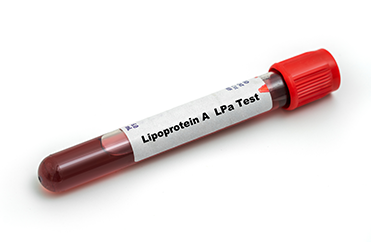
Major Lp(a) changes mainly due to technical issues
Major Lp(a) changes are due mainly to technical issues rather than biological fluctuations, according to results of a study, …
Other Congress News
ESC Congress 2025
29 August – 1 September, Madrid, Spain
At a record breaking ESC 2025, with over 1,100 sessions showcasing practice-changing research, Lp(a) focused advances included new ESC/EAS guidance on Lp(a) as a cardiovascular risk-enhancing factor, together with new research on reduced need for lipoprotein apheresis with Lp(a) lowering therapy, latest trends in Lp(a) testing, patient advice about Lp(a), and further evidence linking elevated Lp(a) with poor cardiovascular outcomes.
Upcoming Congress

ACC.26
28 – 30 March, New Orleans, USA

















